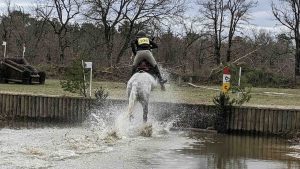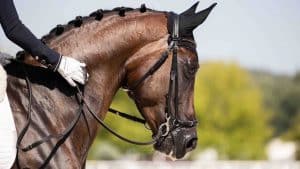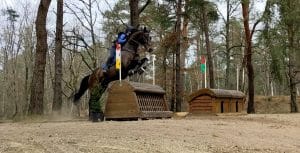A soldier for fifteen years, Sergeant Armand is now assigned to the Military Riding School in Fontainebleau (France) as a farrier. Insatiable perfectionist, he opens the doors of this elite institution where the horse has all its letters of nobility.
The call of commitment
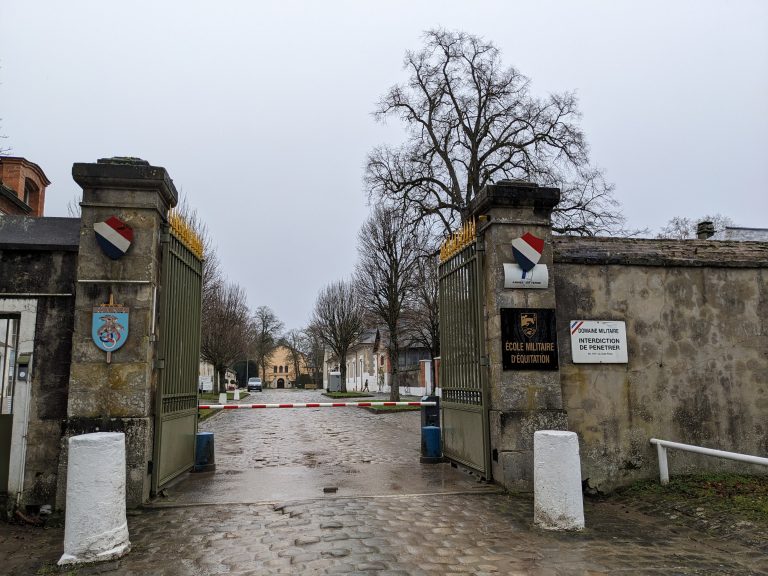
His french farrier diploma in hand, it was at seventeen that Armand decided to fully begin his professional life. Too young to pretend to settling on his own business in civilian life, the young farrier was at the time in need of a framework.
Motivated by the desire to improve, a character trait that has not left the soldier, this will encourage him to cross the threshold of an Armed Forces Recruitment Information Center in France.
At the time of his engagement, no farrier place is available. For two years, Armand was therefore a soldier in the field. He is trained to participate in important internal and external operations.
Fate will decide otherwise because the soldier is offered the possibility of reconnecting with his early life: the opportunity to join the military equestrian sports sector opens up to him!
Military first
The observation is clear, it is a chance to be able to combine profession and passion, as evidenced by one of the soldiers serving in the equestrian section of Fontainebleau: "Some people pay to ride a horse in civilian life. In our case, we are paid to ride and train our horses every day. I consider it a real chance every morning, going to work”.
This chance, however, must be contextualised. If it is true that Riding Master are riders on a daily basis, they nevertheless remain first and foremost soldiers of the Army. As such, pure military training is an integral part of their early training and their professional career.
The training of soldiers is therefore common regardless of the specialty targeted :
- The test phase: your abilities in the targeted profession are assessed. The Army is made up of more than four hundred different trades: chartered accountant, farrier, rider, computer programmer, etc. Your profession learned in civilian life comes to the service of the French Army.
- The selection: the candidates are then evaluated physically, psychologically and medically.
- Initial training: for eight months, the recruits are trained in the military world (behaviour, handling of weapons, combat situation, etc.). During this period, the subsequent specialty is put on hold, you are trained as a soldier.
- Assignment to a regiment: this is when you are affiliated with the profession you wish to practice during your military career (farriery, cook, sniper, etc.) Certain levels and categories of studies make exception to this common training, in particular, for example, veterinarians.

The Military Riding School of Fontainebleau in France
Within the Military Riding School of Fontainebleau, no less than one hundred and sixty horses are present for the training of soldiers and promotion in competition. The Fontainebleau institution also hosts a riding school open to civilians.
Four farriers are in charge of the care of the horses feet and followed of horseshoes. A veterinary clinic entirely dedicated to the care of horses is also on site. These equine health professionals practice daily on site. They may sometimes be required to intervene with other military equestrian units if reinforcements are needed to provide care for equines. The military riders, for their part, take care of the daily outings and the enhancement of the horses entrusted to them.
Performance targets are expected: rankings in competitions and qualification of young horses for french Championships. All horses purchased for the French Army – generally at three years old – go through the Military Riding School of Fontainebleau and are trained by military riders according to their abilities (Eventing, Jumping or Dressage).
At the same time, some civilian owners entrust their horses to the Military Riding School of Fontainebleau for valorization.
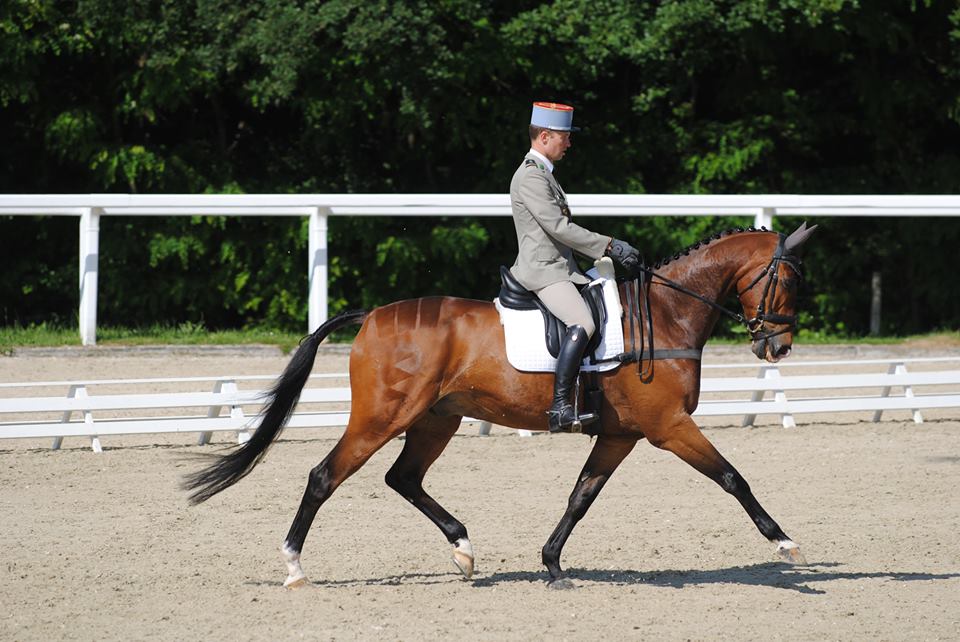
Participation in high-level events is one of the school’s missions. For a long time, soldiers have participated in international competitions and in particular in Eventing Horse Riding. The Military Riding School is also regularly represented in show jumping and dressage.
« The results in competitions are not a goal in itself within the Army », Armand explains to us. « It nevertheless remains a showcase and a source of pride in participating in the promotion of the French equine sector. The foals purchased all come from French farms. They are patiently trained and valued by the Ridings Masters and the breeders are attentive to their results. »
Armand himself was the farrier of Ocarina du Chanois, with which Chief Warrant Officer Donatien Schauly participated in the most important international competitions in eventing: European Championships, World Championships, Olympic Games, etc. Armand accompanied the couple, ensuring in particular the orthopedic follow-up of the gelding in association with the referring veterinarian during the preparations for Granville, before their departure for the Olympic Games!

At this level of competition, the professionals surrounding the sporting couple work to an extreme level of precision! Everything is thought out and calculated to try to bring the horse to the maximum of its capacities and its performance on D-Day (typology of shoeing, trimming, exact number of days between each shoeing, etc.)
It is through this quest for precision that we are happy to count Armand, and more broadly all farriers of the Military Riding School of Fontainebleau, among the users of our horse tracking technologies.
Words of military farrier
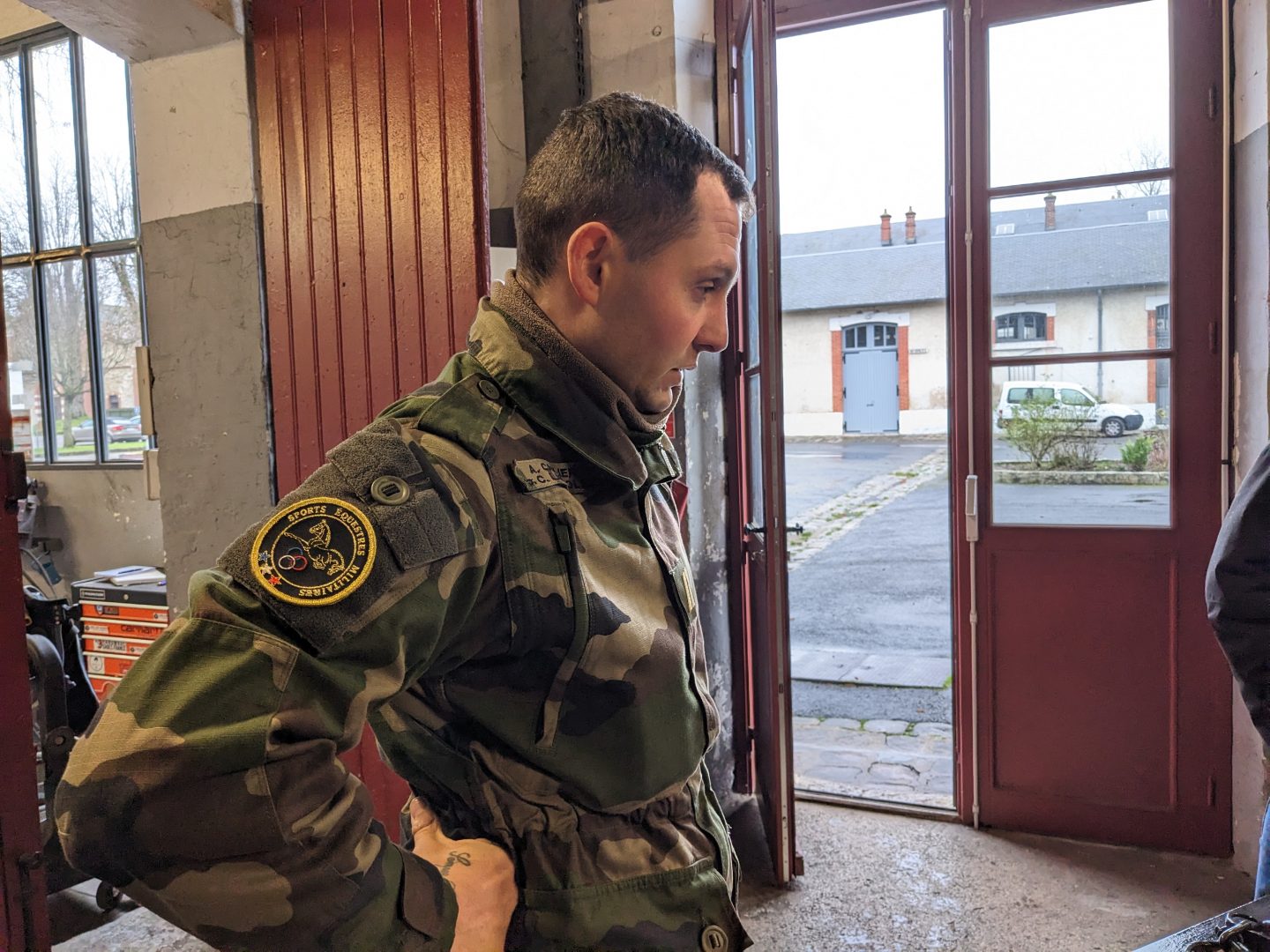
Ekico : Armand, what would you say to young people who hesitate to embark on a military adventure?
Armand : « I will tell them that the Army is a very good school of life. This framework offers the possibility and the time to improve, to evolve, to learn. If you join without a diploma, you have throughout your career the possibility of validating your acquired experience and obtaining equivalences.
It must be recognized that, compared to the civilian world, we are not subject to the same productivity and profitability constraints that some professionals in the equine sector may feel. You therefore gain access to a form of job security and financial security in recognition of your commitment. However, we must not forget, or underestimate, that this commitment is very real and will last for the duration of the contract for which you have signed. »


